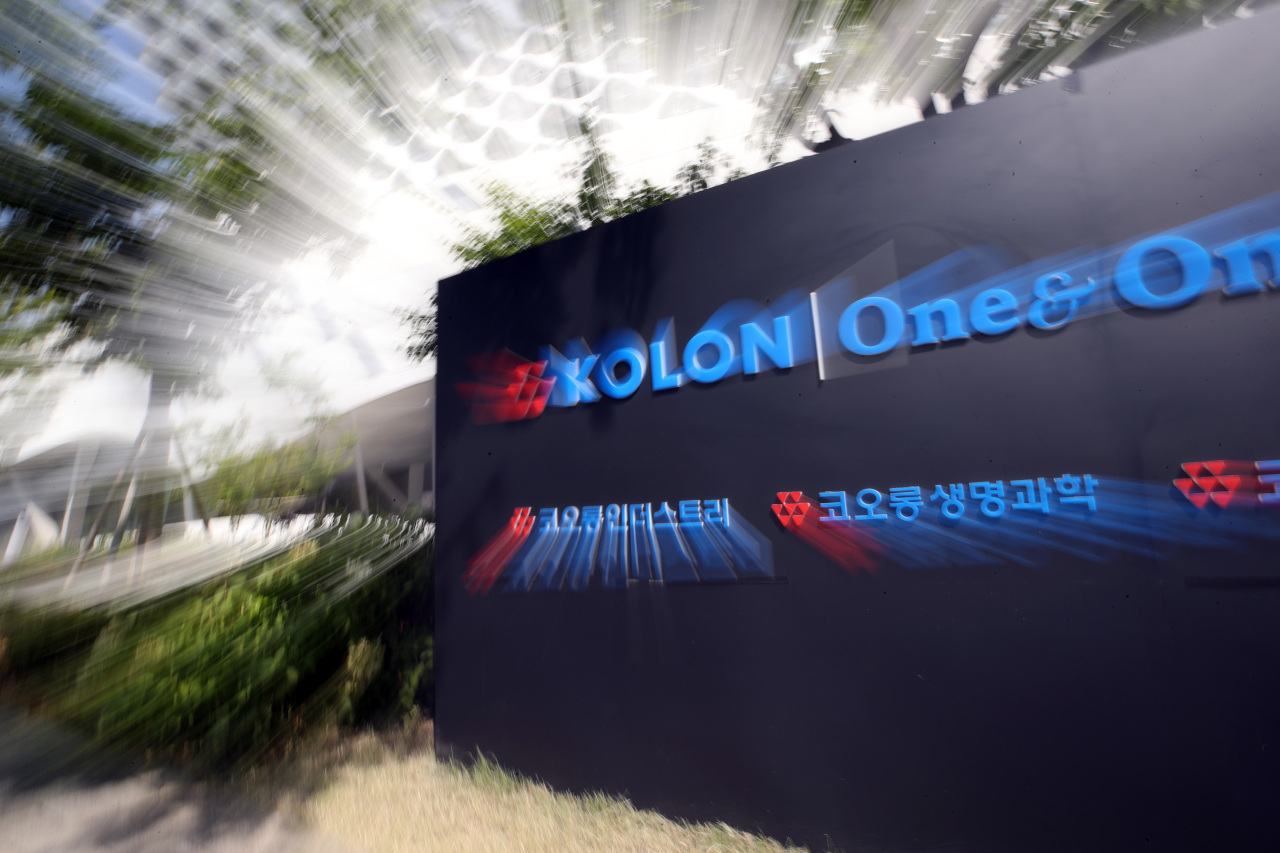[Newsmaker] Kolon TissueGene at brink of delisting, W489.6b at risk of vaporizing
Arthritis treatment mislabeling leads to crisis for some 60,000 shareholders
By Lim Jeong-yeoPublished : Aug. 26, 2019 - 20:58
Shares of Kolon Group affiliates took a dip Tuesday, following the Korea Exchange’s announcement that it has tentatively to delist Kolon TissueGene.
Kolon TissueGene, which had traded at 75,000 won ($62) at its peak, stands at 8,010 won per share, with trading halted and not taking place Tuesday. Kolon LifeScience, the umbrella company of TissueGene, closed at 21.82 percent lower than the previous day at 17,200 won. Kolon fell 5.41 percent.
The Korea Exchange (KRX) made the decision the previous afternoon, after it was discovered the company submitted a false document when it was listed two years ago.
TissueGene will make a rebuttal against the KRX decision in 15 days. It is anticipated to take up to two years to finalize the decision on TissueGene’s delisting.
Kolon TissueGene, which had traded at 75,000 won ($62) at its peak, stands at 8,010 won per share, with trading halted and not taking place Tuesday. Kolon LifeScience, the umbrella company of TissueGene, closed at 21.82 percent lower than the previous day at 17,200 won. Kolon fell 5.41 percent.
The Korea Exchange (KRX) made the decision the previous afternoon, after it was discovered the company submitted a false document when it was listed two years ago.
TissueGene will make a rebuttal against the KRX decision in 15 days. It is anticipated to take up to two years to finalize the decision on TissueGene’s delisting.

TissueGene, headquartered in the US, had made what the media then called an “epic debut” on the Kosdaq market in November 2017. The firm boasted an original technology for a novel joint inflammation drug called Invossa, and had plans to seek US Food and Drug Administration approval in 2021.
In late March this year, however, in the process of preparing the FDA application, the company discovered its cash cow drug had its origins in a cell different to the one it specified in previous paperwork.
Experts have pointed out that the nature of the cell line that was actually used had a high propensity to proliferate, unlike the cell line entered on the original paperwork, raising concerns that it might have cancer-causing properties.
CEO Lee Woo-suk of Kolon LifeScience promptly convened a press conference in Seoul, where he apologized for the mishap and blamed the imperfect technology of 2003, the year the Invossa development began, as the reason Invossa’s main ingredient had been misidentified.
With its only real asset now in doubt, TissueGene shares could lose the remainder of their value, a grim prospect not only to the group but to its 59,445 other shareholders, who hold 36.66 percent of TissueGene shares.
The overall biopharmaceuticals market will also face blow back as TissueGene’s market value, estimated at 489.6 billion won, vanishes.
Former Kolon Group Chairman Lee Woong-yeol owns 17.8 percent of TissueGene, while Kolon owns 27.3 percent and Kolon LifeScience owns 12.6 percent.
TissueGene’s shareholders have levied lawsuit against the company seeking 6.5 billion won. Export-Import Bank of Korea is expected to withdraw the 32 billion won in investments and loans it gave to TissueGene. Of the sum, about 12 billion won is bound by a put option -- an option to sell assets at an agreed-upon price on or before a particular date -- should Invossa does not fulfill US FDA approval by the second quarter of 2020.
Patients who have taken the Invossa shot have also filed for an estimated 7.7 billion won in compensation with a lawsuit against Kolon.
A TissueGene representative on Tuesday told The Korea Herald that the firm would duly comply with authorities in the following steps.
Kolon LifeScience has maintained throughout that Invossa has always used the same source for manufacturing and the product had been identical for the successful clinical trials that led to its commercialization in Korea.
On Thursday, Kolon LifeScience substantiated its claims through a report published by four US doctors titled, “The Safety and Efficacy of a Novel Cell-Based Gene Therapy for Knee Osteoarthritis.”
Authors Hytham S. Salem, Joseph O. Ehiorobo and Michael A. Mont from Lenox Hill Hospital in New York, and Javad Parvizi from Rothman Orthopaedic Institute in Philadelphia, Pennsylvania, stated in the report that “Due to a misidentification error, there have been concerns that this cell-based gene therapy is based on a different cell than the one that was initially approved. However, its safety profile has been demonstrated by over 10 years of data revealing no evidence of tumorigenicity or other long-term safety concerns.”
Apart from Mont, who is a consultant for TissueGene, other authors have no conflicts of interest, the report said.
TissueGene has submitted documents to the US Food and Drug Administration in hopes of restarting the suspended clinical trials for its troubled arthritis treatment Invossa in the US.
(kaylalim@heraldcorp.com)








![[KH Explains] Hyundai's full hybrid edge to pay off amid slow transition to pure EVs](http://res.heraldm.com/phpwas/restmb_idxmake.php?idx=644&simg=/content/image/2024/04/18/20240418050645_0.jpg&u=20240419100350)






![[From the Scene] Monks, Buddhists hail return of remains of Buddhas](http://res.heraldm.com/phpwas/restmb_idxmake.php?idx=652&simg=/content/image/2024/04/19/20240419050617_0.jpg&u=20240419175937)

![[KH Explains] Hyundai's full hybrid edge to pay off amid slow transition to pure EVs](http://res.heraldm.com/phpwas/restmb_idxmake.php?idx=652&simg=/content/image/2024/04/18/20240418050645_0.jpg&u=20240419100350)

![[Today’s K-pop] Illit drops debut single remix](http://res.heraldm.com/phpwas/restmb_idxmake.php?idx=642&simg=/content/image/2024/04/19/20240419050612_0.jpg&u=)